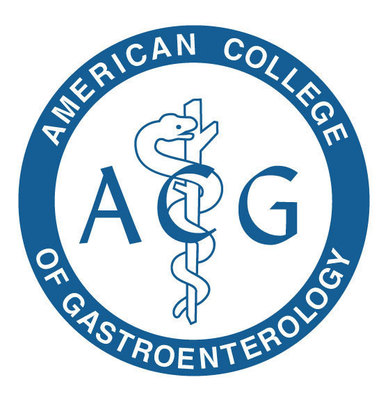Biomarker Advances In Gastroenterology Highlighted, New Data Unveiled In Special Issue Of The American College of Gastroenterology
BETHESDA, Md., June 8, 2015 /PRNewswire-USNewswire/ -- Biomarker advances in gastroenterology are highlighted in a special June issue of The American Journal of Gastroenterology, which also provides new data on how these advances can help the clinician in a wide variety of gastrointestinal (GI) and liver diseases.

Biomarkers (short for biological markers) detect diagnostically useful substances in the blood, urine, tissue or stool and can be powerful tools for clinicians to monitor organic disease. Biomarkers also offer the possibility of subdividing functional GI disease into clinically useful subgroups that may respond differently to therapy or may have a different prognosis. The use of biomarkers in gastroenterology is especially important since GI and liver diseases present with a wide variety of symptoms and these often have poor diagnostic accuracy.
"We often have to rely on imaging or endoscopy to distinguish between organic and functional GI diseases but this can be expensive and invasive and does not help with the differentiation of functional GI diseases," said AJG Co-Editor-in-Chief, Paul Moayyedi, MD, FACG. "Furthermore, even when organic GI or liver disease is diagnosed, symptoms can have poor correlation with severity of underlying disease so follow up of these patients can be challenging."
Highlights of the June Biomarker Issue include:
- Articles on how fecal calprotectin (FP) and lactoferrin can be used as an early marker of the development of pouchitis as well as a study describing the utility of FP in asymptomatic post-operative recurrence of Crohn's disease. Read full study
- American Association for the Study of Liver Diseases and the European Association for the Study of the Liver guidelines have moved away from using alpha-fetoprotein (AFP) in cirrhosis surveillance programs but data from the biomarker AJG issue suggests that AFP does add useful information to ultrasound in diagnosing hepatocellular carcinoma. Read full study
- An interesting study suggests Wisteria floribunda agglutinin positive Mac-2 binding protein is a strong predictor of clinical outcome in primary biliary cirrhosis and is superior to all other non-invasive markers in predicting fibrosis stage. Read full study
- An article demonstrating the value of cyst fluid glucose in diagnosing mucinous pancreatic cysts. Read full study Read author insight
- Fascinating data on the identification of gluten-degrading Pseudomona aeruginosa from human feces. The authors identified an enzyme pseudolysin B produced by these bacteria that degrades gluten and could potentially render it non-immunogenic. This could be used as a marker to determine subjects that are at low risk of celiac disease despite having the genetic predisposition, and also raises intriguing possibilities for new therapies for celiac disease.
Read full study - A prospective study of Eosinophilic esophagitis (EoE) cases and non-EoE controls who underwent endoscopy for reflux of dysphagia , found that none of the 14 serum biomarkers examined, which were a range of proinflammatory cytokines, eosinophil chemokines, and eosinophil granules, had utility for either diagnosis or monitoring of EoE.
Read full study Read author insight
"Whatever their interest, this issue of AJG is sure to give physicians information on biomarkers that will change their clinical practice and benefit their GI patients," said Dr. Moayyedi.
See full Table of Contents for the AJG June Biomarker Issue
About the American College of Gastroenterology
Founded in 1932, the American College of Gastroenterology (ACG) is an organization with an international membership of more than 12,500 individuals from 86 countries. The College's vision is to be the pre-eminent professional organization that champions the evolving needs of clinicians in the delivery of high quality, evidence-based, and compassionate health care to gastroenterology patients. The mission of the College is to advance world-class care for patients with gastrointestinal disorders through excellence, innovation and advocacy in the areas of scientific investigation, education, prevention and treatment. www.gi.org
About the American Journal of Gastroenterology
Published monthly since 1934, the Journal is the College's official peer-reviewed journal. The goal of the Journal is to publish scientific papers relevant to the practice of clinical gastroenterology. It features original research, review articles and consensus papers related to new drugs and therapeutic modalities. The ACG Editorial Board encourages submission of original manuscripts, review articles and letters to the editor from members and non-members.
Logo - http://photos.prnewswire.com/prnh/20140421/76919
To view the original version on PR Newswire, visit:http://www.prnewswire.com/news-releases/biomarker-advances-in-gastroenterology-highlighted-new-data-unveiled-in-special-issue-of-the-american-journal-of-gastroenterology-300095589.html
SOURCE American College of Gastroenterology
 Help employers find you! Check out all the jobs and post your resume.
Help employers find you! Check out all the jobs and post your resume.
